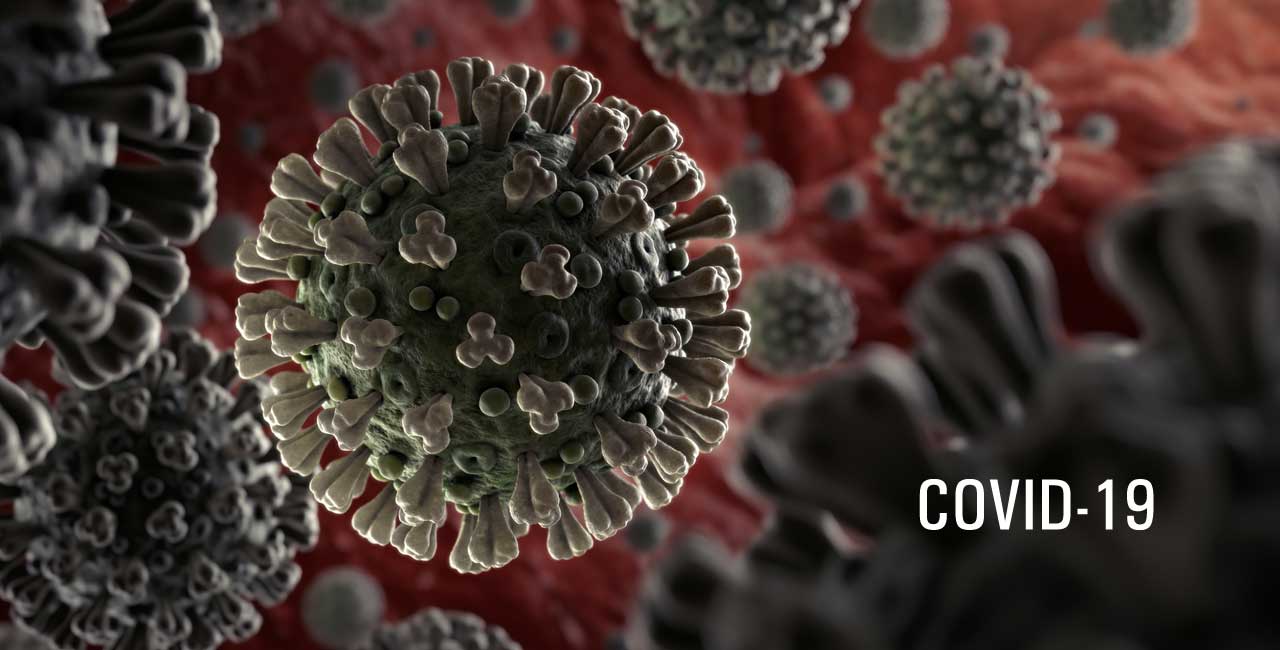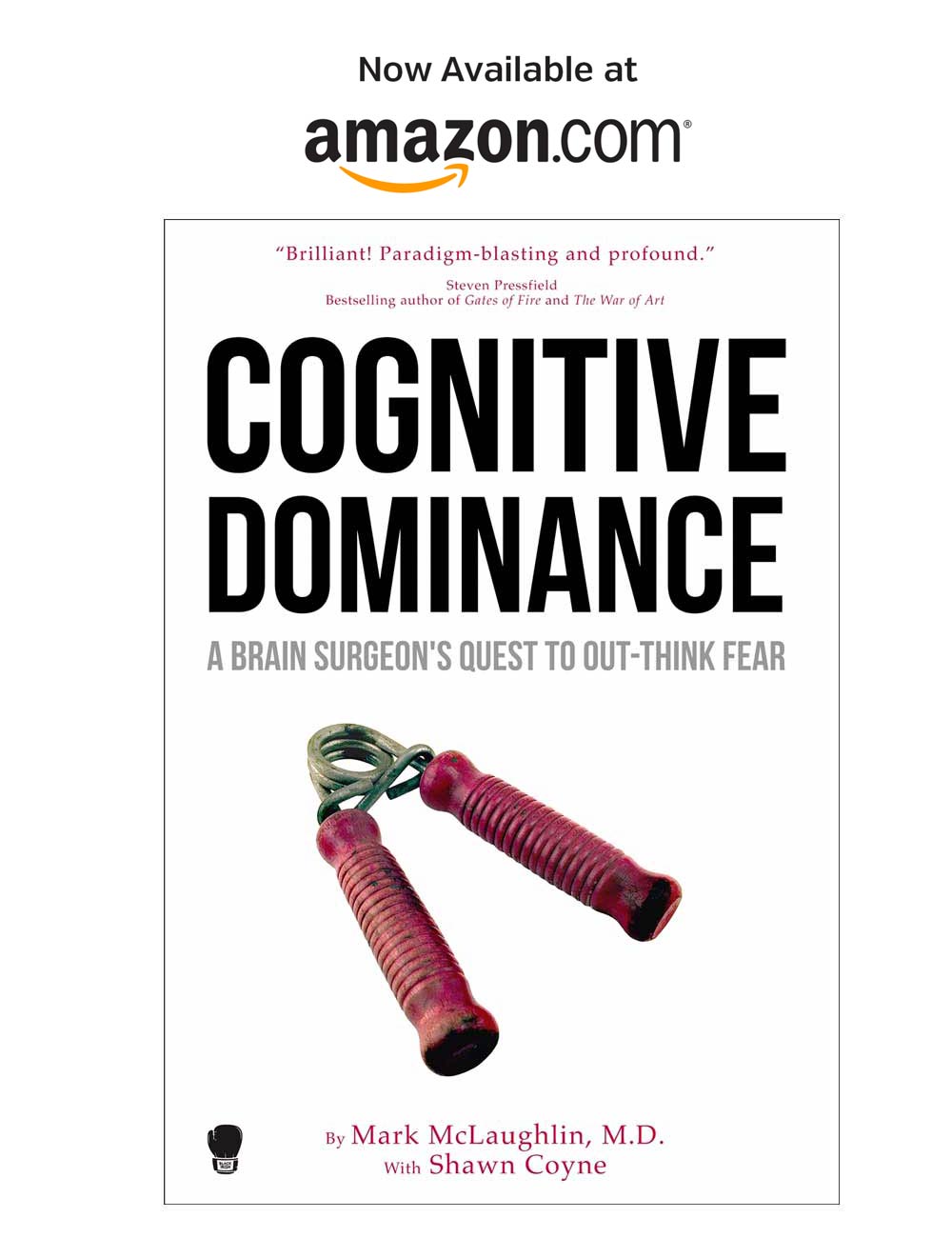COVID-19 : Dealing With Fear and Uncertainty

Dealing with Fear and Uncertainty: The IRISE Solution
By Mark McLaughlin, MD,FACS, FAANS
I wish I could say I saw this coming. I’d love to be one of those people who took the Coronavirus seriously from the beginning. I was not.
At first I thought the fears were being blown way out of proportion. I was so wrong. U.S. figures from the Centers for Disease Control and Prevention (CDC), based on mortality data and projections on how many could contract the disease, show deaths could range from 200,000 to 1.7 million according to one model.
Let me offer some justification for my premature and in hindsight naïve belief. Medically, at least from an epidemiological standpoint, I still believe we have comparatively larger health problems in this country. Again according to the CDC, the top five causes of death annually in the U.S. are heart disease, 647,457; cancer, 599,108; accidents, 169,936; chronic lower respiratory disease, 160,201; and stroke, 146,383.
But none of the other health epidemics/pandemics we know have cut through us like this one. None of these other health problems move so quickly, striking all ages (though certainly those over 60, particularly with underlying health issues are more vulnerable.) Then we add in the damage to the world economy. This pandemic also shatters individuals’ financial futures, the security so many have saved for, the businesses they believed in and gave their all to, even the tightropes some walk to feed themselves and their families day-to-day. The horrible strength of this pandemic is that it cuts across so many personal and social borders.
To get through this I’ll have to rely on advice I give others. In my practice of medicine I utilize a technique called IRISE when I face a totally unknown and unexpected event. It’s an acronym that stands for: I- Identify, R-Reject, I- Inventory, S-Stabilize, and E-Evaluate. Let’s apply it to the Coronavirus scenario.
- Identify: we have a Black Swan event, extremely rare, with severe impact. Never in our lifetime has something like this happened.
- Reject: immediately reject whatever your first gut reaction is. For me that was denial and minimization. For some that could be panic, worry, hoarding. I’m sure you’ve seen some of that out there.
- Next, Inventory: break this down into its objective and subjective parts. What do we not know about it? What are our options? What can we control? What are the resources we can quickly tap into to get on more solid ground.
- Stabilize: Implement any strategy that can buy time so we can think of alternative solutions.
- And lastly Evaluate: once we know we are in a upside-down situation, we’ve rejected our initial self-preservation response which is almost never the solution (unless we are literally in a mortal combat situation – pretty unlikely.) The evaluate phase is were we need to think laterally AND logically.
Since I’m pretty sure you and I and most of the world are already past the Identify and Reject phase of this methodology, let’s focus on Inventory, Stabilize and Evaluate.
Inventory
What are our options as a country? Containment measures implemented seem to be on target. We must flatten the curve of this virus spread and the most recent data suggests this appears to be working. Could the isolation measures be stricter? Yes, perhaps, but it appears that the responses in the most populated cities and states have been strong and other states are following these leads.
As a medical leader in the world, we are not where we could be. We have realized so many weaknesses in our medical delivery system such as deficiencies in testing equipment, masks and protective gear, as well as therapeutic drug and life sustaining equipment shortages. We are playing catch up in this department.
As an individual, I have been educating myself on the medical, social and economic ramifications of this event. I have been asking myself what I can do to help. My first answer is be a good citizen and a good doctor. So that’s what I am focusing on. I am following the mandates that New Jersey Governor Murphy has implemented and I am serving as a doctor where needed. I have gently declined invitations to bend social distancing guidelines from some of my friends. I share an important and helpful article by Atul Gawande to help us understand how we can minimize risk of exposure to healthcare workers.
I’m looking for other things I can do. If you have any ideas I welcome them.
Stabilize
This phase is critically important. How can we preserve some semblance of the world as we knew it one month ago? The social distancing techniques now in effect are a way of stabilizing this, but there is more to do. A good article about predictions about how this could turn out without serious intervention was posted here.
The cessation of all elective surgeries is another well implemented way of stabilizing. Because the virus is transmitted by aerosolized droplets there is a high risk for surgeons and the operating room to be a site of transmission. For example, surgeons who use power equipment in surgeries on Covid19 positive patients can spread viral deposits through an entire operating room. And because the virus can last on surfaces for days this can lead to transmission to multiple support staff workers in the OR including nurses, OR technicians and set-up and clean-up crew.
Furthermore anesthesiologists ENT surgeons working on airways are at significantly higher risk for contracting the virus.
We need to get a more powerful convincing enrollment of the 20-45 year old population who don’t feel at the same risk and may be asymptomatic carriers or vectors of this disease. Social distancing will not succeed without their full cooperation.
Evaluate
Finally, what’s at our disposal to combat this problem? Current innovations such as mask sterilization and reuse, splitting ventilators to double capacity and diluting the testing kits to get two tests out of one are pragmatic but not ideal, seemingly more a MASH solution than how we as a country should be able to handle the situation. These strategies help but only skirt around the edges of the problem. Philanthropy is another novel approach to combatting this dilemma. Donations of medical equipment and supplies have decreased the burden on hospitals running low. But let’s looks at why we have to rely on charity to help infected people survive.
Lessening the transmission will yield significantly higher results so we need to brainstorm possible ways to stop the spread of Coronavirus that we haven’t yet considered. Novel vaccination strategies such as supercharging existing vaccines with fragments of the new coronavirus may create a more rapid breakthrough to inoculate populations. Bringing medical ships in for support and isolation, opening previously closed facilities that can accommodate Covid-19 positive patients are all options that need to be assessed carefully. Promotion and refinement in E-commerce is also vital to our economic recovery.
Also we need communication of clear concise scientifically true information. Take a look at this article in The Atlantic. It is depressing but important if we are to understand and deal properly with this pandemic and others that may come.
Conclusions
There are no quick solutions to this pandemic. But we can function effectively even in the face of failure. I have always found that when I apply the IRISE methodology to any of my Black Swans my fear levels seem more manageable. When your brain realizes that you can unpack unknown events and identify parts of them that can serve as clues to the solution, somehow it feels like an accomplishment. A certain level of fear is good. It amps up our performance. Combine it with a smart approach to viewing major problems and it’s at least one way to get through these trying and difficult times.
